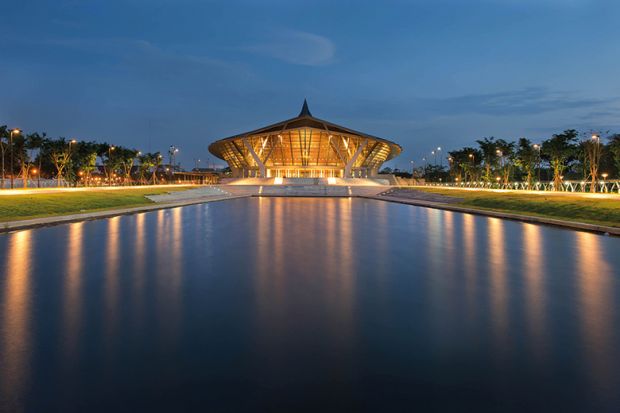The success or otherwise of universities ultimately comes down to one factor: its people. At Mahidol University, we are focusing on increasing access to the institution by doubling down on the recruitment and retention of academic talent and introducing a more flexible education model. We hope this will better prepare the university for any volatility and disruptions that may occur in the future.
Our talent policy can be divided into four areas: training academic staff; facilities and research incentives; recruiting support staff; and recruiting academics.
The first category focuses on capacity development. We are embedding the principles of the UK’s Professional Standards Framework (PSF) to meet global academic standards. Setting a goal for academic staff to improve their teaching abilities has a direct impact on the university’s teaching and learning standards and quality.
Second, we are seeking to retain top researchers by providing key incentives – such as research grants and training – for them to scale up their research and publication output and to increase their h-index and citations. The aim is to nurture the university’s research culture and to ensure that the research aspirations of talented scholars are sustained throughout their employment at the university.
The third plank, our support staff recruitment drive, focuses on hiring marketing experts to help with marketing research, international relations experts to lead on global partnership engagement, and data analysts. These staff are also members of the university who can effectively liaise with the private sector and other stakeholders outside the institution, for example to boost the commercialisation of research.
Finally, we are proactively recruiting talented researchers by offering competitive salaries in a bid to help drive up the quality of research and teaching and to encourage top students to apply to the university.
Attracting diverse student talent does not come down to just recruiting and retaining academic talent, however. Another important aspect is a clear road map for education improvement. At Mahidol, we are in the process of adapting our educational policy to accommodate the future generation, which has different expectations and preferences.
We are laying out a solid groundwork for online learning using massive open online course (Mooc) platforms to accommodate different groups of students and those who might like to re-enter university for reskilling and upskilling. Ensuring that teaching and learning platforms can accommodate members of the public at any stage of their lives, both on-site and online, is critical to increasing access and promoting a lifelong passion for learning.
Access to Mahidol is also enhanced through a credit bank system: prospective undergraduate and postgraduate students are able to collect credits before officially enrolling in the university. This gives flexibility to new learners and to those already in the labour market, as they are not required to take leave from their jobs to become full-time students.
Third, our approach to expanding access is not focused only on providing young people with the opportunities to excel at professional-based disciplines. On the contrary, first-year students will be equipped with the necessary skills and literacies across a broad range of areas, including health, science, environment, intercultural and global awareness, finance and management, and civic education.
Finally, we are redesigning curricula to feature cross-disciplinary components to attract students who want to gain skills and knowledge in multiple areas. For example, our recently introduced bachelor’s degree in arts and science in creative technology consists of a combination of courses provided by our International College, our Faculty of Information and Communication Technology, the Ratchasuda College for Disabled Adults, and our College of Music. We also offer a degree in medicine combined with engineering or management.
With our new strategy of human resources management and our new flexible education model, we are working towards transforming and increasing access to higher education for the betterment of society.
Banchong Mahaisavariya is president of Mahidol University. He will be speaking about creating talent and transforming access to university at the THE Asia Universities Summit, in partnership with Fujita Health University, from 31 May to 2 June. Register to attend.
View the THE Asia University Rankings 2022 results
POSTSCRIPT:
Print headline: Two drives, one goal
Register to continue
Why register?
- Registration is free and only takes a moment
- Once registered, you can read 3 articles a month
- Sign up for our newsletter
Subscribe
Or subscribe for unlimited access to:
- Unlimited access to news, views, insights & reviews
- Digital editions
- Digital access to THE’s university and college rankings analysis
Already registered or a current subscriber? Login








